- Thanks to:
- Pony Canyon Inc.
Related Article
-
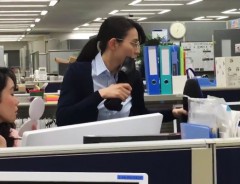
Clever Commercials Shows Japanese Office Worker Delivering Stinky Feet KO’s After Too Much Work
-
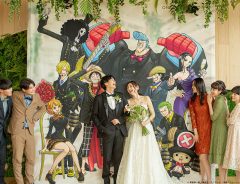
You can now have a One Piece wedding in Japan
-
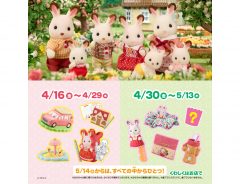
Sylvanian Families take over McDonald’s Happy Meals this spring!
-
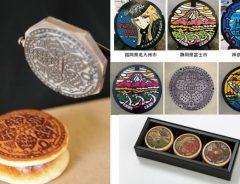
Japan’s Surprisingly Artistic Manhole Covers Have Their Own Festival, And Of Course Sweets Too
-

Japanese Kindergarten Built Around Trees Encourages Kids To Just Be Kids
-

Japan’s Latest Idol Unit Is A Group Of 60 Miner Mannequins
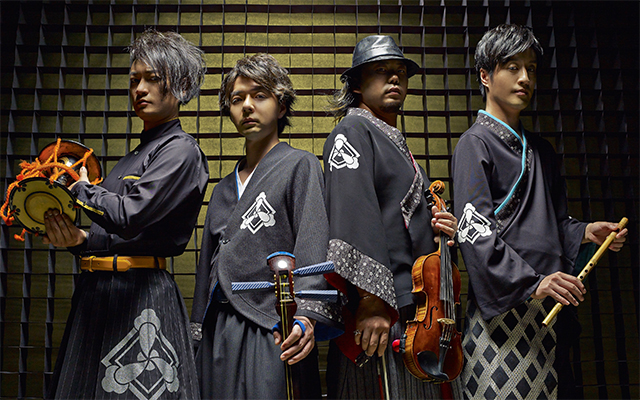


With the creed of "communicating the soul and culture of Japan to the world", Ryoma Quartet, a modern samurai, is here to rock your soul.
Their "weapon" is not a sword, but traditional Japanese instruments that have been in use for hundreds of years, and a violin.
One strike on a Tsuzumi drum will spark your Samurai spirit
Ryoma Quartet is instrumentally comprised of Tsugaru-Shamisen, Shinobue flute, Tsuzumi drum, and a violin. For those of you that do not know how these instruments sound, we asked Ryoma Quartet to play them.
They are normally a gentle bunch, but as soon as they hold their instruments, their faces change. When we watched their performance at the studio, we were struck by sheer power of each note that they produce.
Performing YMO's "RYDEEN" on Japanese instruments
What would then happen when they use these instruments to perform well-known Japanese works, like Yellow Magic Orchestra's "RYDEEN"? Well, in their latest album "NEO ZIPANG", they did just that. A track that already had an oriental atmosphere is given a Japanese boost. And every time I hear Jin's (Tsuzumi) vocal call, I get a rush of goose bumps.
Interview with Ryoma Quartet
The four members of the Ryoma quartet were already fully-fledged professional musicians before they formed this group. So we asked them why they decided to work together.
―― How did this quartet come about?
Ryoma (Violin): As a Japanese, I always wanted to do performances that are truly Japanese. But since my instrument is a violin, I wanted to work together with musicians that play traditional Japanese instruments. I looked for and asked each of them to join the project, one by one.
―― How did you feel when you received the offer from Ryoma?
Sui (Shinobue Flute): We actually wanted to make traditional music more accessible. We felt that by working together with Ryoma, we will be able to create music that would strike a chord with different kinds of audiences, including people who doesn't know anything about Japan.
―― Did you have anything against doing something new?
Sui: Some people in the world of traditional arts might have something against new things. But I felt that we as musicians are going to miss out on all other genres of music. So at the beginning, I wanted to just give it a shot, regardless of the outcome. And eight years on, I'm grateful that I've joined this project.
Jin (Tsuzumi): I couldn't hold back the excitement when I heard about this project. And once we started, it was nothing but fun.
Masakatsu (Tsugaru Shamisen): Japanese music has its own rhythm and "space". There were some concerns at first, that we might lose that quintessential Japanese style if we infuse our sound into European music. But as we started to gel as a group, that problem was resolved. And eight years of maturity had made our music even better.
―― What makes Ryoma Quartet's fusion music special?
Ryoma: The biggest strength we have is that each member works freely to compose music without worrying about the genre. It's all about "our sound" - the resonance that we produce is the core part of Ryoma Quartet's music.
Sui: There are certainly more than a few fusion bands that involve Japanese instruments, however, we cover a whole range of genre, from EDM, rock, Latin music, as well as covers. The four of us doing anything is one of our strengths.
Masakatsu: We also have a set of "te" (traditional phrases) when we play traditional instruments. We don't just use the timbre of the Japanese sounds, but also its phrases and melodies. In other words, we try and bring out the characteristics of the traditional instruments.
Jin: We infuse methods that have over 400 years of history into modern melody. We put our soul into that. I don't think for a moment that we devalue these traditional instruments: we strike each and every note with a mindset that "this is the real thing".
―― In a modern world, it's difficult to define what "being Japanese" mean. What is "Japan" as expressed by Ryoma Quartet?
Ryoma: We believe it's the soul. It is one of Japan's strengths to be able to absorb foreign cultures. However, I think that our core had never changed. One of the ways to resurrect that truly Japanese soul is through the sounds of traditional instruments. Our existence, and the way we still make music using these instruments must surely be something Japanese.
―― Tell us about your latest album "NEO ZIPANG"
Ryoma: The album was named by Masakatsu.
Masakatsu: Although we use old instruments, we want to show "new Japan" with them. NEO means "new", but there is also a meaning of resurrection as well, that's why I chose this word for the album.
Ryoma: We tried to do something new, by expressing the coolness of Japan in the guise of various musical genre. We think it turned out really well, and hope people will listen to it again and again.
―― Does the quartet have any goals?
Ryoma: Japanese culture is being recognized again recently. We want to bring a new form of entertainment using all the goodness of new and old. We want people all over the world to recognize Ryoma Quartet as a form of Japanese culture. And if we can, we want to perform at the opening of Tokyo 2020. We think this is possible if people across the globe enjoy the sound we create.
Ryoma Quartet Website